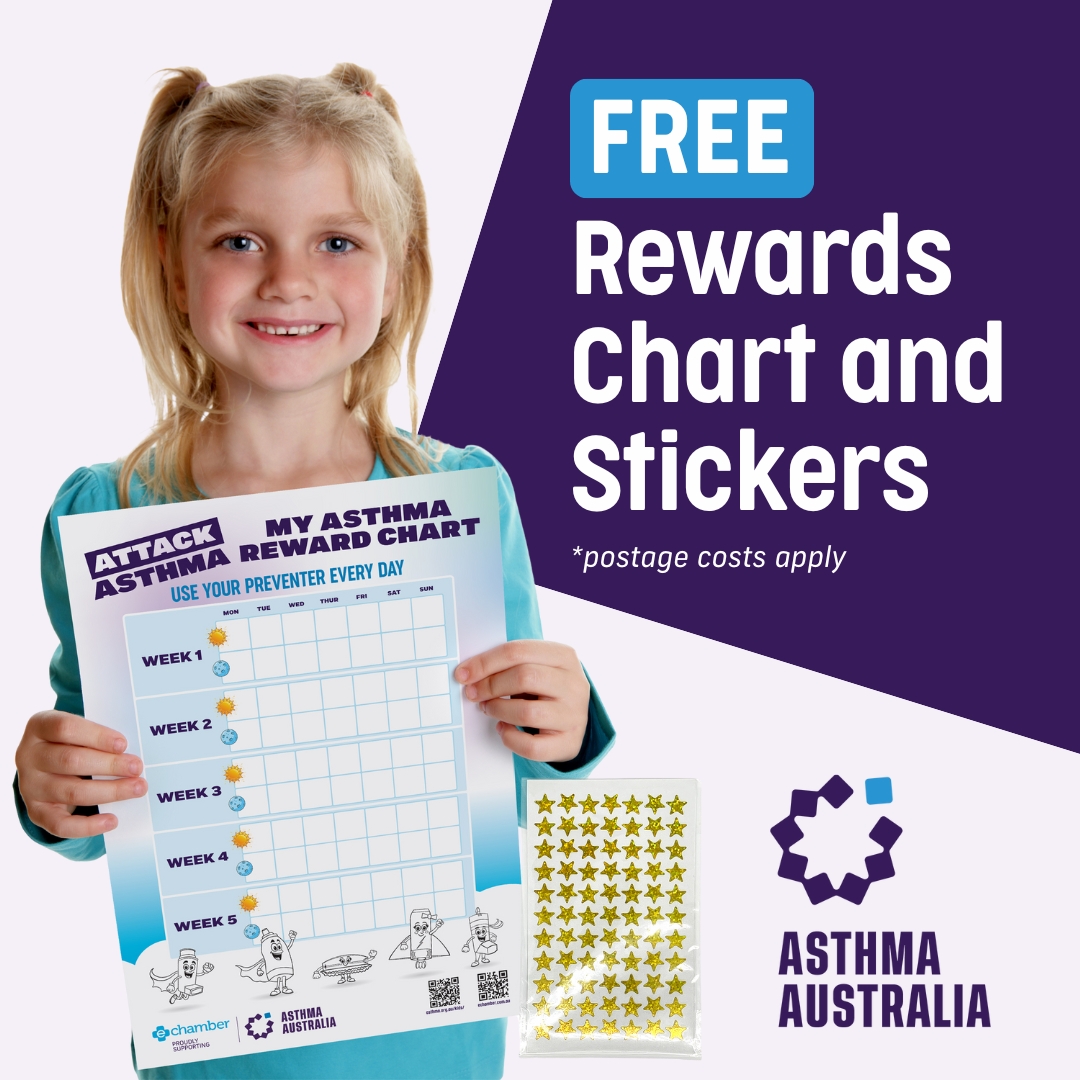The TSANZSRS Annual Scientific Meeting was held in Adelaide this year from the 21st-25th March. It was a delight to reunite with so many old friends and to meet new ones. A number of the Asthma Australia team were in attendance, and we proudly showcased the breadth and depth of our work and engaged with so many attendees, partners and sponsors.
On our exhibition stand we offered clinicians the opportunity to order patient education resources, which we will package and post to their clinics. If you are interested, you can also Order Patient Education Materials here.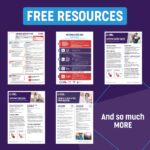
It was wonderful to hear feedback on how others have been using these tools in practice. For example, a Respiratory Specialist told us she was able to change a patient’s mindset on spacer use by using the visual representation of how a spacer works to get the inhaler medications deep into the lungs.
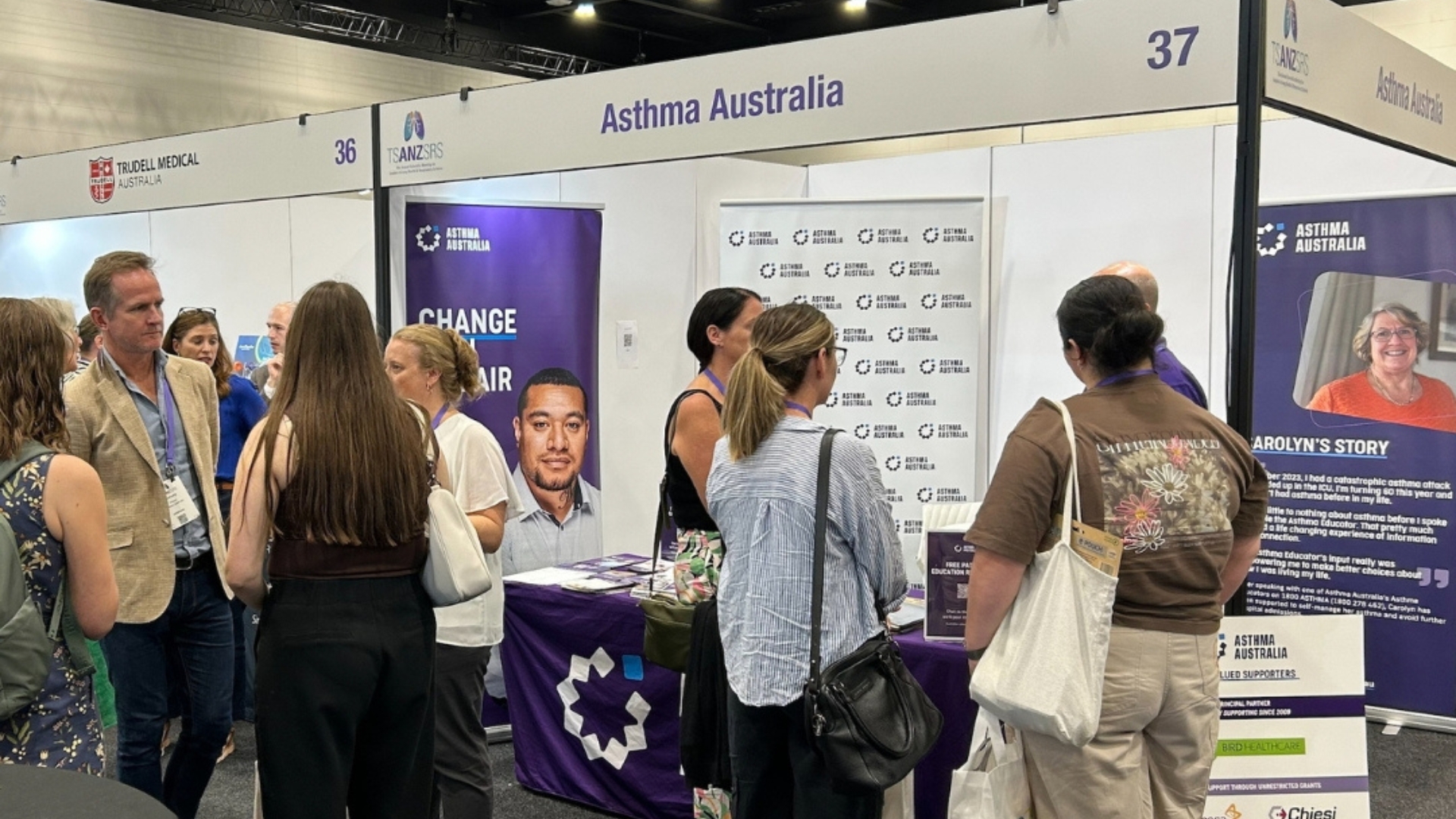

Our CEO, Kate Miranda, presented the Peter Van Asperen Early Career Development Grant Award to Dr Gabriela Martins Costa Gomes from the Hunter Medical Research Institute. Our ongoing investment in early career researchers is essential to driving innovation and improving outcomes for people living with asthma. Read more about Dr. Martins’ research.
Cathryn Berry, the Strategic Healthcare Engagement Lead, presented in the Evidence-Based Medicine & Practice SIG on the Quality use of Medicines in Chronic Airways Disease healthcare professional education Program Design. We learnt that human-centred design puts people at the core of problem-solving, creating solutions that are desirable, feasible and viable, and how this methodology was used to deliver the healthcare professional education now available on The QUAD.
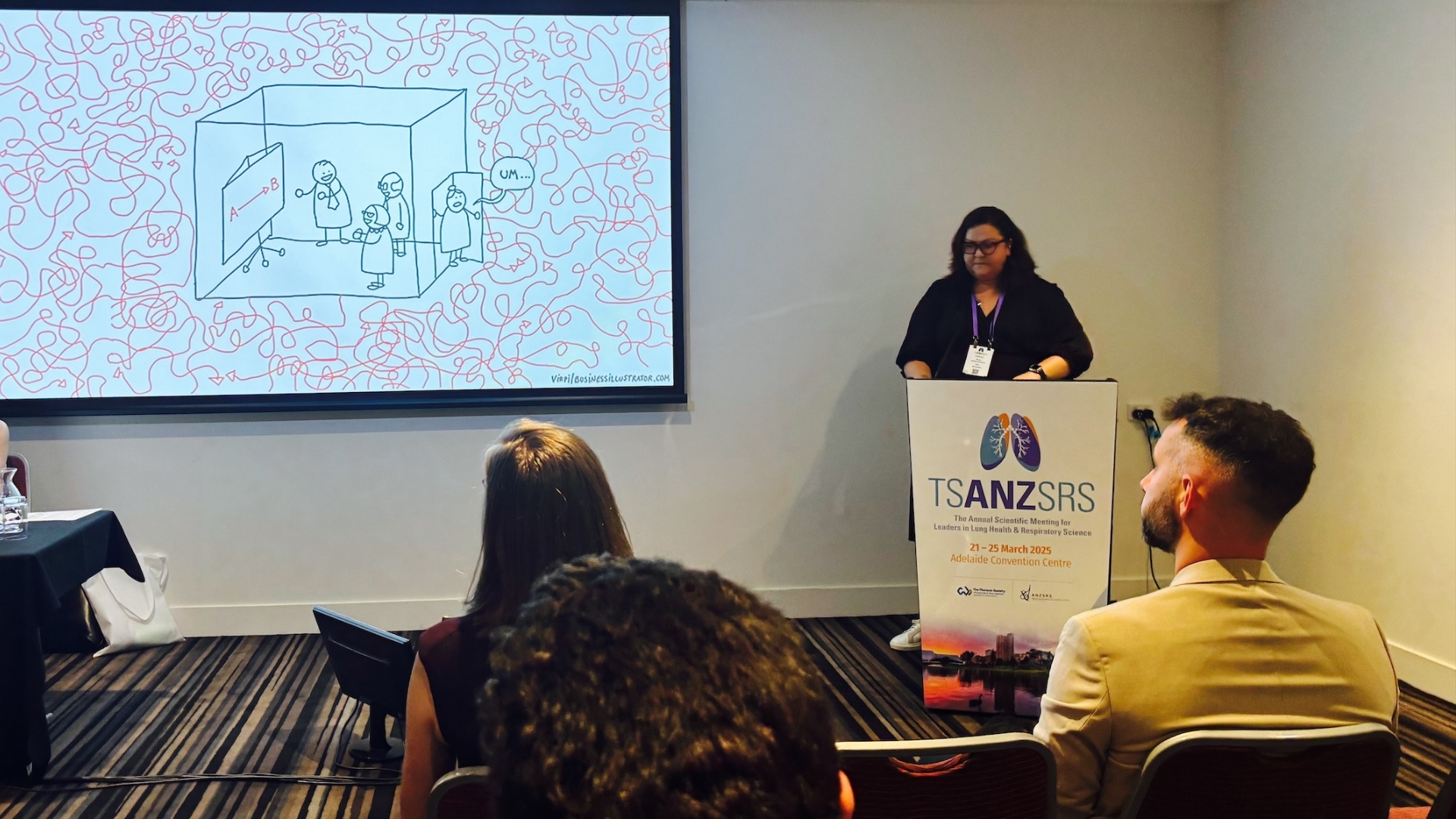
Anthony Flynn, Director Health Knowledge and Translation, presented on The role of consumer peak bodies in the preparedness and response to extreme weather events. Anthony discussed the impact of asthma on mental health and the need for practical support during extreme weather events. He outlined Asthma Australia’s role in awareness, education and advocacy, emphasising the importance of community engagement, research and policy development. Anthony stressed the need for multi-disciplinary collaboration and adaptive strategies, including urban planning and air filtration. You can also read the scientific poster presented at the conference on the pilot program, Airsmart, designed in response to a consumer survey following the 2019-2020 bushfires.
We were delighted to support two symposia on the main program. The National Sustainable Asthma Care Roadmap symposium brought together experts involved in the development of the Roundtable Report. Prof Madeleine Skellern, Director of the National Health Sustainability and Climate Unit within the interim Australian Centre for Disease Control, spoke about the National Health and Climate Strategy and how by starting work in asthma we can provide a proof of concept for what needs to happen and can happen across the health system. Dr Danielle Wurzel from the Royal Children’s Hospital in Melbourne summarised the substantial impacts of climate change on lung health, as well as the high carbon footprint of inhaled medicines, urging clinicians to actively think about lower carbon options in every aspect of care relating to asthma. Dr Cindy Needham, a Research Fellow at Deakin University talked us through the methodology of the roundtable series and generation of the Roadmap, ensuring the diverse range of voices and perspectives were heard and mapped. Finally, Dr Mike Forrester, a Senior Research Fellow at Deakin University and general paediatrician at University Hospital Geelong, brought the elements together in presentation of the Roadmap and the eight goals of this system-oriented work. Read the Roadmap and sign up for updates as the program progresses.
The CURE Asthma symposium, chaired by Prof Christine Jenkins of the George Institute for Global Health, Dr Alen Faiz from University of Technology Sydney and our own Anthony Flynn, outlined the 10-year ambition to lead a national approach to cure asthma. Prof Gary Anderson from the University of Melbourne energetically opened the session naming the ambition to cure asthma. He outlined the process to date, bringing together our best thinkers from across the country – the great leaders and young talent – to create the plan to tackle the tractable problems of the utmost importance leveraging the best science and technology.
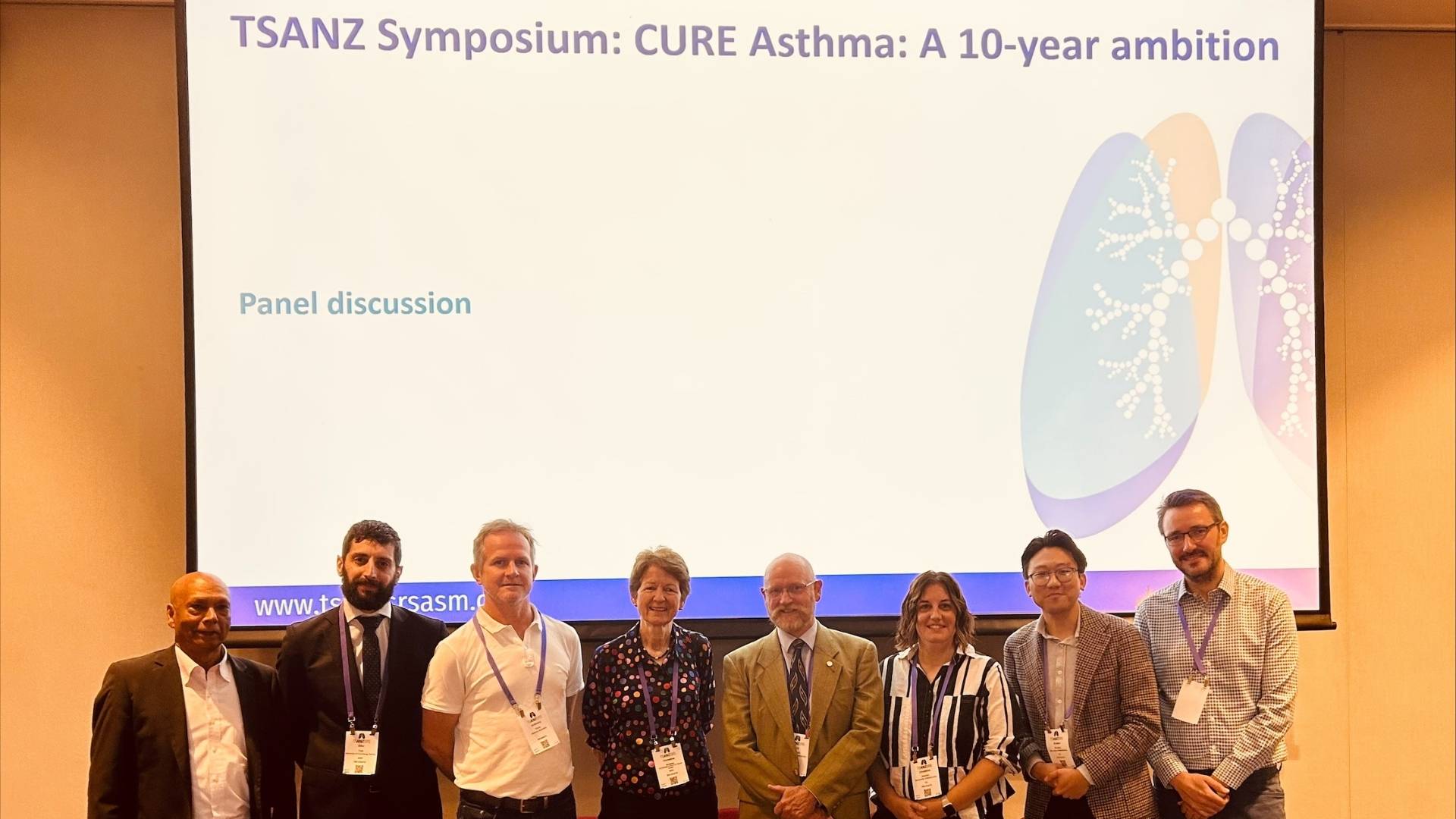
Dr Sundram Sivamalai, representing the Asthma Australia Consumer Advisory Council, gave an inspiring speech urging the importance of the move from guessing about the management of asthma to providing hope to all patients. “It’s about time asthma’s underlying causes are identified and its cure is established, to eliminate the human suffering. If we have a cure, it will bring hope to all our consumers.” Dr Christine Keenan, Laboratory Head at the Bio21 Institute, shared from her perspective as a molecular immunologist and mother of a young child with asthma. She told us about some key paradigm shifts from the last decade that are being leveraged to change understanding of disease processes and to find molecular targets to cure asthma. A/Prof Michael Menden, University of Melbourne, took us through a mind-bending update on the principles behind Artificial Intelligence and how its application to the creation of “digital twins” can help us more towards personalised medicine. Finally, Dr Aowen Zhuang, who works with Prof Anderson at the University of Melbourne, talked us through the shifts in asthma management from the 20th century approach focusing on rescue, to the 21st century preventative medicines. He set forth the mindset needed for the cure-ative and personalised treatment options of the future that leverage understanding of the genetic and molecular drivers for asthma. Read more about CURE Asthma and sign up for updates.
We are already looking forward to TSANZSRS ASM 2026 in Perth!





 1800 278 462
1800 278 462



